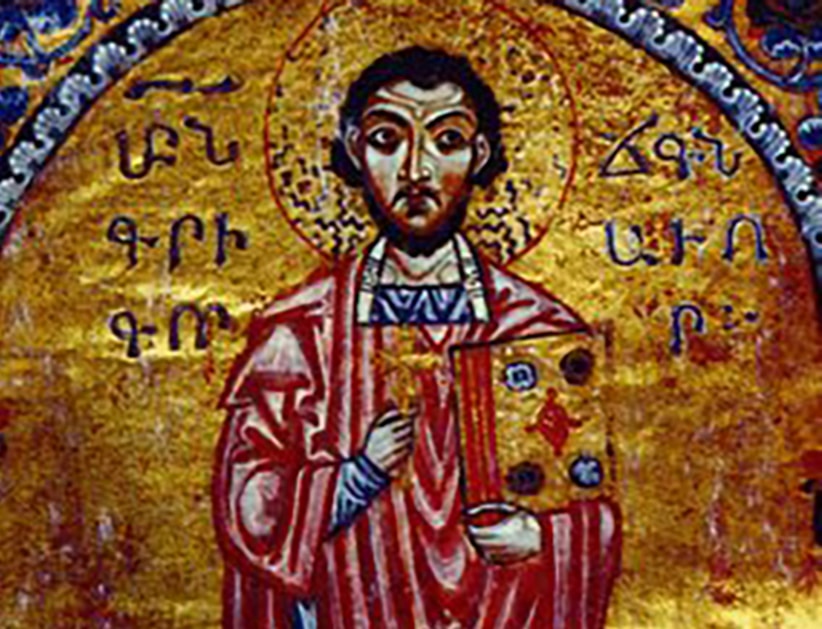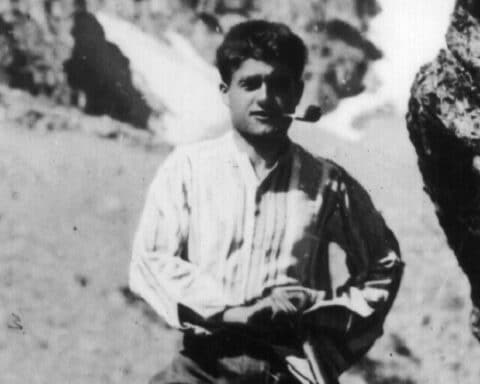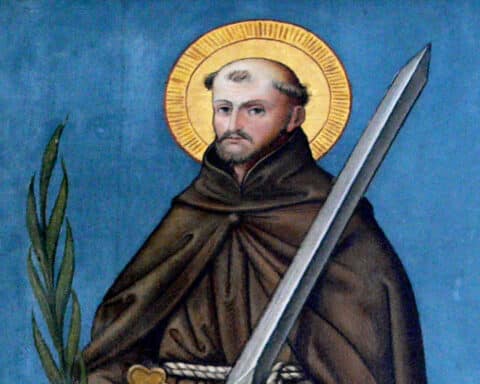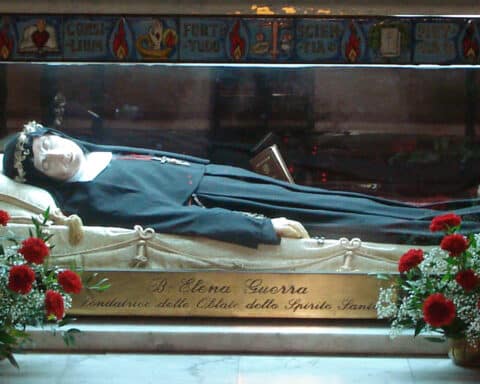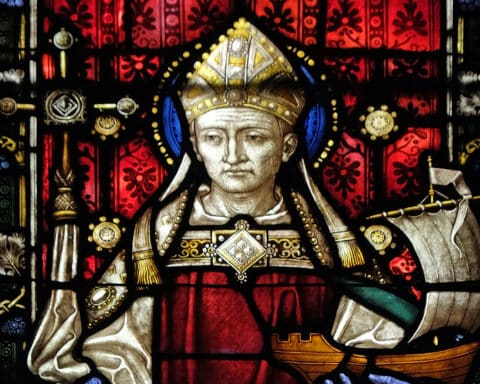St. Gregory of Narek
Feast day: February 27
St. Gregory of Narek was an Armenian monk, poet, mystical philosopher and theologian born in A.D. 950. In 2015, in commemoration of the 100th anniversary of the Armenian genocide, Pope Francis declared him a Doctor of the Church for his timeless and profound writings. St. Gregory of Narek was also referenced by Pope St. John Paul II in his encyclical Redemptoris Mater:
“In his panegyric of the Theotokos, Saint Gregory of Narek, one of the outstanding glories of Armenia, with powerful poetic inspiration ponders the different aspects of the mystery of the Incarnation, and each of them is for him an occasion to sing and extol the extraordinary dignity and magnificent beauty of the Virgin Mary, Mother of the Word made flesh.”
St. Gregory of Narek is known for writing a number of famous letters, sharagans, odes, melodies and Church writings. His earliest extant writing is a commentary written in A.D. 977 on the Song of Songs. Although St. Gregory of Narek is the author of many works, he is most well known for his “Book of Lamentations,” a collection of ninety-five prayers he completed shortly before his death in A.D. 1003. It is considered by scholars to be a metaphor for the preparation and celebration of the Divine Liturgy — an “edifice of faith,” as St. Gregory of Narek said, and it echoes the suffering of the Armenian people and that of many cultures today. A section of Prayer 95 said to Christ reads as follows:
By your noble and glorious blood,
offered unceasingly to please God who sent you,
may the dangers be lifted from me,
may my transgressions be forgiven,
may my vices be pardoned,
may my shamelessness be forgotten,
may my sentence be commuted,
may the worms shrivel,
may the wailing stop,
and the gnashing of teeth fall silent.
Let the laments lessen and tears dry.
Let mourning end and darkness be banished.
May the vengeful fire be stamped out
and torments of every kind exiled. …
May you who grant life to all be compassionate now.
Let your light dawn,
your salvation be swift,
your help arrive in time,
and the hour of your arrival be at hand.
Amen
St. Gregory of Narek is the only Doctor of the Church who was not in communion with the Roman Catholic Church during his lifetime since he lived and died as a member of the Armenian Apostolic Church. However, the Armenian Church regards itself as both Orthodox and Catholic, since it considers itself to be an expression of true Christian faith and of the universality of the Church. In December 1996, Pope St. John Paul II and His Holiness the Catholicos of All the Armenians, Karekin II, signed a joint declaration in which they affirmed the common origin of the Armenian Church and the Roman Catholic Church.
Reflection
Dear God, have mercy on all people who suffer today throughout the world. May we know your hope and love particularly through celebrating the Holy Sacrifice of the Mass and may we never forget that you carry our crosses with us. Mary, Queen of Peace, pray for us!
Prayer
Lord God, who graciously imbued blessed Gregory of Narek with heavenly doctrine,
grant, through his intercession,
that we may keep that same teaching faithfully
and express it in what we do.
Through our Lord Jesus Christ, your Son,
who lives and reigns with you in the unity of the Holy Spirit,
God, for ever and ever. Amen.

